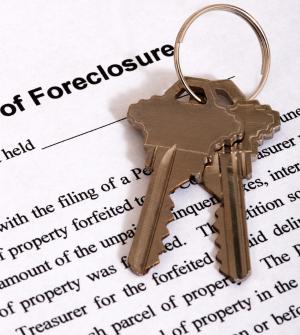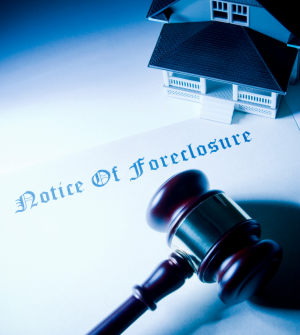
Understanding The Foreclosure Process In Massachusetts: A Comprehensive Guide
Foreclosures in Massachusetts can be challenging and perplexing for homeowners. When selling a foreclosed home, it is critical to understand the stages involved so that you may make informed decisions and maximize your alternatives.
In Massachusetts, the foreclosure process starts with a lender mailing a “right to cure” notice, giving the homeowner 150 days to bring their mortgage payments up to date. If the homeowner fails to do so, the lender will file a complaint in court, beginning the formal foreclosure process.
The property will be sold at auction after going through numerous phases of notices and hearings. It is critical for homeowners to be informed and seek competent advice during this process in order to defend their rights and explore all viable options.
- Understanding The Foreclosure Process In Massachusetts: A Comprehensive Guide
- When Does Foreclosure Begin, And How Long Does It Take?: Understanding The Timeline
- Can I Still Sell My Home If I Am Behind On My Payments But Not Yet In Foreclosure?: Exploring Pre-foreclosure Options
- Advantages To Selling Pre-foreclosure: Why Acting Early Can Make A Difference
- Am I Allowed To Sell My Home After I Have Received A Foreclosure Notice?: Navigating Legal Requirements
- How Selling Your House During Foreclosure Can Help You Avoid Financial Ruin
- Factors To Consider When Selling Your House During Foreclosure: Tips And Advice
- Working With Your Lender To Sell Your House During Foreclosure: Negotiation Strategies
- Finding A Real Estate Agent Experienced In Foreclosure Sales: What To Look For
- Options For Selling Your House In Massachusetts During Foreclosure: Pros And Cons
- Steps To Take To Ensure A Successful Sale During Foreclosure: From Listing To Closing
- How To Handle Any Remaining Mortgage Debt After Selling Your House During Foreclosure: Expert Insights
- The Benefits Of Seeking Professional Help During Foreclosure: Why You Shouldn’t Go It Alone
- Sell Your House Fast To A Cash Home Buyer Before It’s Too Late: Exploring Alternative Options
- Benefits Of Selling A Home That Is In Foreclosure: Maximizing Profits And Minimizing Losses
- Can You Sell A House In Foreclosure In Massachusetts?: State-specific Laws And Regulations
- How To Prepare For A Successful Sale Despite Facing Foreclosure
- The Impact Of Credit Score And Equity On Selling A House In Foreclosure
- How Long Does A House Stay In Pre-Foreclosure In Massachusetts?
- What Type Of Foreclosure Allows A Property To Be Sold?
- How Do Foreclosures Work In Massachusetts?
- Does Massachusetts Have A Right Of Redemption For Foreclosure?
When Does Foreclosure Begin, And How Long Does It Take?: Understanding The Timeline

Foreclosure in Massachusetts can be a difficult and intimidating process for homeowners struggling to make mortgage payments. Understanding the foreclosure timetable is critical for maximizing your options while selling your home.
Foreclosure occurs when a homeowner misses many mortgage payments, and the lender issues a notice of default. From there, the timing varies based on the conditions, but in Massachusetts, the foreclosure process normally lasts 150-200 days.
During this time, several stages occur, including pre-foreclosure, auction, and post-foreclosure. It is critical to keep knowledgeable about these steps and their timelines so that you may make sound decisions about selling your home before it goes into foreclosure.
Can I Still Sell My Home If I Am Behind On My Payments But Not Yet In Foreclosure?: Exploring Pre-foreclosure Options
If you are experiencing financial issues and falling behind on your mortgage payments, you may be concerned about losing your home to foreclosure in Massachusetts. Even if you have not yet received a notice of foreclosure, there are always options for selling your home.
Pre-foreclosure refers to the time between when you miss payments and when the lender formally begins the foreclosure process. During this time, you can consider many choices, including a short sale or a repayment plan with your lender.
To increase your chances of successfully selling your house during a pre-foreclosure sale, act immediately and seek help from a real estate agent specializing in the process.
Advantages To Selling Pre-foreclosure: Why Acting Early Can Make A Difference

Selling a foreclosed home can be a frightening and stressful process, particularly in Massachusetts. However, there are some important advantages to selling pre-foreclosure that can influence the result of the transaction.
By acting quickly and putting your home on the market before it officially enters foreclosure procedures, you can maximize your alternatives and potentially rescue yourself from financial distress. Selling pre-foreclosure gives you more time to negotiate with lenders and buyers, as well as greater influence over the sale price.
Selling a pre-foreclosure property can protect your credit score and increase your earning possibilities. Acting quickly in this scenario can make all the difference in successfully selling a house under foreclosure in Massachusetts.
Am I Allowed To Sell My Home After I Have Received A Foreclosure Notice?: Navigating Legal Requirements
If you received a foreclosure notice on your house in Massachusetts, you may be wondering if you may still sell it. Yes, but you must follow specific legal conditions.
Obtaining authorization from the foreclosing lender, providing proper information to potential buyers, and adhering to state-specific timelines are all necessary steps. When selling your home in foreclosure, you should seek the advice of a knowledgeable real estate agent or attorney who can help you navigate these legal restrictions and maximize your alternatives.
Understanding and executing the appropriate requirements can help you avoid losing your house completely and potentially benefit financially from the sale.
How Selling Your House During Foreclosure Can Help You Avoid Financial Ruin

Selling a house in the course of foreclosures in Massachusetts may additionally seem like a frightening and overwhelming task; however, it can indeed be a strategic circulate that will help you stay away from financial spoiling. By setting your house on the market before it goes into foreclosure, you’ve got the opportunity to doubtlessly pay off your loan and any top-notch debts.
This also can save you further harm on your credit score and permit you to begin fresh with a smooth economic slate. Additionally, promoting your home in the course of foreclosure gives you more control over the process and allows you to barter with potential shoppers for the best possible rate.
With careful planning and the right approach, selling your house during foreclosure can be a way to maximize your options and protect yourself from long-term financial consequences.
Factors To Consider When Selling Your House During Foreclosure: Tips And Advice
When facing foreclosure in Massachusetts, it’s critical to understand the elements that may influence your alternatives for selling your home. One of the most important concerns is the timetable; the longer you wait to sell, the more limited your options may become.
You should also analyze the current status of the home market and how it may affect your prospects of finding a buyer. Understand your mortgage terms, including potential fines and penalties for selling during foreclosure.
Another consideration is identifying the best-selling approach for your specific scenario, such as listing on the market, collaborating with a real estate investor, or investigating other options. With careful research and skilled help, you can make informed decisions to optimize your possibilities and effectively sell your foreclosure home in Massachusetts.
Working With Your Lender To Sell Your House During Foreclosure: Negotiation Strategies

When faced with the threat of foreclosure on your Massachusetts home, it is critical to understand your alternatives and collaborate closely with your lender to find a resolution. Negotiating with your lender might be difficult, but there are several methods you can follow to improve your chances of successfully selling your home.
First and foremost, you should talk freely and honestly with your lender about your situation. This will help to build trust and maybe lead to better negotiation terms.
Gathering all relevant papers and financial information can increase your negotiation power. It is also advisable to examine current market circumstances in Massachusetts and come up with a reasonable asking price for your home.
By using these bargaining methods, you can increase your chances of reaching an agreement with your lender and maximizing your alternatives for selling during foreclosure.
Finding A Real Estate Agent Experienced In Foreclosure Sales: What To Look For
When selling a foreclosed house in Massachusetts, it’s important to work with an experienced real estate agent. When looking for an agent, there are various variables to consider.
First and foremost, seek an agent that has substantial expertise and experience in the local market. They should have a solid understanding of the foreclosure process and can properly help you through it.
Additionally, look for an agent with a solid track record of selling foreclosure properties who can provide references from former clients. It’s also critical to pick an agent who is open and informative, keeping you informed throughout the process.
Finding a skilled and professional real estate agent will help you optimize your alternatives and boost your chances of successfully selling your Massachusetts foreclosed home.
Options For Selling Your House In Massachusetts During Foreclosure: Pros And Cons

Being about to be kicked out of your Massachusetts home might make you feel like you don’t know what to do. It’s possible to sell your house even though it’s getting into debt.
You might be able to avoid the damage that a sale would do to your credit score and get some money back. But before you make a choice, you should know the pros and cons of this option.
It’s possible to get out of debt and move on with your life if you sell your house quickly. You might not make as much money as you would at a regular sale, though, if you sell during a foreclosure.
People may also not want to buy a house that has a lot of debt on it, which could make the selling process harder and take longer. You should give these things a lot of thought before you decide that selling your house during foreclosure is the best thing for you.
Steps To Take To Ensure A Successful Sale During Foreclosure: From Listing To Closing
If you have the unpleasant task of selling a foreclosure in Massachusetts, you must do everything possible to ensure a successful transaction. Before you do anything else, list your home with a reputable real estate broker who has experience with foreclosure sales.
They can manage the necessary documents and guide you through the entire process. To attract potential buyers, ensure your home is competitively priced and that any necessary repairs or upgrades are completed.
Working closely with your agent and bargaining well when offers come in can help you get the best deal. To avoid delays or complications after an offer is accepted, it is critical to adhere to closure criteria and timelines.
These steps will help you maximize your options and boost your chances of selling your Massachusetts house during foreclosure.
How To Handle Any Remaining Mortgage Debt After Selling Your House During Foreclosure: Expert Insights

If you want to buy a house in Massachusetts that has been foreclosed on, you should know that there may still be mortgage debt. This debt can happen if the house doesn’t sell for enough to pay off the mortgage.
To handle this problem, it’s important to get help and advice from professionals. You could talk to the lender about a lower refund or payment plan for any debt that you still owe.
You could also file for bankruptcy, which could help get rid of or adjust your debt. Also, make sure you read all papers and agreements carefully before signing them because they might have parts that make you responsible for any mortgage debt that’s still out there.
You can handle any mortgage debt that’s left over after selling your house in Massachusetts during foreclosure if you get professional help and know all of your choices.
The Benefits Of Seeking Professional Help During Foreclosure: Why You Shouldn’t Go It Alone
It can be scary and stressful to think that you might lose your house to foreclosure. People in Massachusetts who own foreclosed homes need to know what options they have when they want to sell their homes.
Some people may try to go through this process on their own, but getting professional help can be very helpful in many ways. A professional not only knows everything there is to know about the foreclosure process, but they also have access to useful tools and contacts that can help you find the best answer for your needs.
They can also give you good advice and support throughout the whole process, which will make it less stressful for you and increase your chances of a good ending. Don’t go through foreclosure by yourself; think about getting professional help to make the most of your Massachusetts home-selling choices.
Sell Your House Fast To A Cash Home Buyer Before It’s Too Late: Exploring Alternative Options

You need to act quickly if you are facing foreclosure on your Massachusetts house. You might want to sell your house quickly to someone who will pay cash.
This option can help you avoid the long and stressful process of selling the house the old way, which might not be possible if the house is in debt. Dealing with a cash buyer means you can get an offer and complete the sale in just a few days. This lets you move on and maybe even get some cash in hand.
Do not wait until it is too late; look into this other choice to improve your chances of selling your home before it goes into foreclosure.
Benefits Of Selling A Home That Is In Foreclosure: Maximizing Profits And Minimizing Losses
Are you finding it scary to think about selling a Massachusetts foreclosed home? Although this may seem like a tough and stressful situation, it is important to keep in mind that there are good things that will come from going through this. Profitability and loss minimization are among the biggest benefits.
Selling your home during foreclosure gives you a chance to get some of your money back and keeps your credit score from dropping even more. The right tactics and advice can also help you sell your house for a higher price, which will give you a bigger profit margin.
This can help compensate for any missed mortgage payments and filing fees related to the default process. To sum up, selling a foreclosed home lets you regain control of your finances and make smart choices that can help you make more money and lose less.
Can You Sell A House In Foreclosure In Massachusetts?: State-specific Laws And Regulations

Massachusetts foreclosure house sales are challenging due to state-specific laws and regulations. Understanding these laws and regulations is essential to selling your foreclosed property.
Remember that the right of redemption permits homeowners to retrieve their property within a certain timeframe following the foreclosure sale. Massachusetts also has severe foreclosure sale notification rules that must be followed.
Not following these laws can delay or prevent the sale of the property. Thus, while selling a foreclosure house in Massachusetts, you must consult with a knowledgeable real estate agent or attorney to guide you through this complex process and guarantee you follow all state-specific laws and regulations.
How To Prepare For A Successful Sale Despite Facing Foreclosure
As a homeowner facing foreclosure in Massachusetts, I find it difficult and distressing to sell my property. However, with proper preparation and expertise, you may make a great sale regardless of your financial status.
The first step is to learn about the foreclosure process in Massachusetts and your rights as a homeowner. This will allow you to make more informed judgments and prevent any scams.
It is also important to communicate openly with your lender and explore all of your options, such as loan modifications or short sales. Additionally, preparing your house for sale by decluttering, making necessary repairs, and staging can greatly increase its appeal to potential buyers.
Finally, enlisting the help of a reputable real estate agent who has experience with selling houses in foreclosure can be invaluable in navigating the process and maximizing your options for a successful sale.
The Impact Of Credit Score And Equity On Selling A House In Foreclosure

Your credit score and equity can affect the process of selling a Massachusetts foreclosure. Selling the house and getting a new loan depends on your credit score.
Higher credit scores attract more buyers and boost your chances of getting good bids. However, a low credit score may make it hard to locate buyers or finance, lowering sale prices.
Your equity in the property can also impact the sale. Higher equity gives you additional alternatives for negotiating with lenders and avoiding foreclosure.
However, low or negative equity may limit your alternatives and make selling the house harder. Thus, these aspects must be considered when selling a Massachusetts foreclosure home.
How Long Does A House Stay In Pre-Foreclosure In Massachusetts?
When considering foreclosure in Massachusetts, it is critical to understand the timeline of the process. A residence will often be in pre-foreclosure for roughly 90 days before being legally foreclosed.
During this time, homeowners can engage with their lenders to develop a strategy to avoid foreclosure. This can involve loan modifications and short sales.
If no agreement is reached, the residence will be auctioned off by the sheriff. It is critical for homeowners to move immediately and investigate all available options in order to increase their chances of selling their home before it goes into foreclosure in Massachusetts.
What Type Of Foreclosure Allows A Property To Be Sold?

When facing the risk of foreclosure on your Massachusetts home, it’s critical to understand the various foreclosure processes and how they may affect your ability to sell. Judicial foreclosure involves a lender going via the court system to sell the property.
This can sometimes result in a longer sale schedule, allowing homeowners more time to consider their options. Non-judicial foreclosures are faster and less court-involved but may limit the homeowner’s ability to sell before finalization.
It is critical to understand the sort of foreclosure you are facing in order to make sound decisions about selling your home and maximizing your possibilities.
How Do Foreclosures Work In Massachusetts?
Especially in Massachusetts, foreclosures can be scary and hard to understand. If you are facing foreclosure on your home, you should learn how the process works so that you can make the most of your choices and maybe keep your home.
Foreclosures in Massachusetts usually go through the court system, which is also known as the “judicial process.” This means that homeowners can fight the sale and talk with their lenders.
This does, however, mean that the process may take longer and cost more for everyone. If you are facing foreclosure in Massachusetts, you should talk to a lawyer and look into all of your options. You may be able to sell your home before it goes into default.
If you know how foreclosures work in this state, you can make smart choices that might keep your home from being sold at auction.
Does Massachusetts Have A Right Of Redemption For Foreclosure?
Massachusetts foreclosure rules can be complex and perplexing, particularly when it comes to the right of redemption. This is a homeowner’s legal right to regain their property after it has been foreclosed upon by paying off the remaining mortgage amount.
In Massachusetts, homeowners facing foreclosure have the right to redemption. However, the timeline and procedures differ based on the type of foreclosure process involved. To maximize their chances of effectively selling a foreclosed home in Massachusetts, homeowners should understand their alternatives and seek professional advice.
By understanding the legal implications of foreclosure and taking early steps, homeowners can potentially prevent losing their property and reach a better outcome.
These details apply to the entire state of Massachusetts, including cities like Springfield, Amherst, Tolland, Ludlow, and Chicopee, as well as their surrounding areas. If you require extra assistance or have particular inquiries, please contact us at (413) 224-8294. Please see our website, Nunley Home Buyers, for more information and complete descriptions of our services.
Get An Offer Today, Sell In A Matter Of Days…
More Resources for Home Sellers in Massachusetts
| MORTGAGES | AUCTIONEER | ATTORNEYS | LAWYERS | BORROWER | DEBTOR |
| REAL ESTATE MARKET | MONEY | SHORT SELL | COMPARATIVE MARKET ANALYSIS | MORTGAGE MODIFICATION | DEED |
| HOMEBUYERS | ENTER A JUDGMENT | JUDGMENT | COMPANY | INCOME | |
| DEFICIENCY JUDGMENTS | SELLER | REGISTRY OF DEEDS | LITIGATING | LAWSUIT | SUIT |
| BIDDER | POSTAL CODE | ZIP CODE | TAX | TAXES | SCRA |
| SERVICEMEMBERS CIVIL RELIEF ACT | RISKS | MARKET VALUE | MARKETING | ASSET | UNCERTAINTY |
| PRICING | OWNERSHIP | FORGIVENESS |


